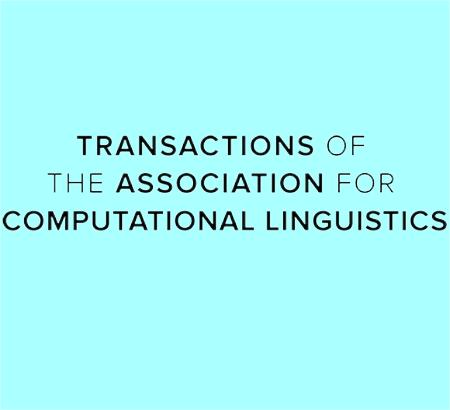利用短文本模型实现长文本的高效理解
IF 4.2
1区 计算机科学
Q2 COMPUTER SCIENCE, ARTIFICIAL INTELLIGENCE
Transactions of the Association for Computational Linguistics
Pub Date : 2022-08-01
DOI:10.1162/tacl_a_00547
引用次数: 21
摘要
基于transformer的预训练语言模型(LMs)在自然语言理解中无处不在,但由于其二次复杂度,不能应用于故事、科学文章和长文档等长序列。虽然已经提出了无数有效的转换器变体,但它们通常基于定制实现,需要从头开始进行昂贵的预训练。在这项工作中,我们提出了SLED:滑动编码器和解码器,这是一种处理长序列的简单方法,可以重用和利用经过实战测试的短文本预训练的lm。具体来说,我们将输入划分为重叠的块,用短文本LM编码器对每个块进行编码,并使用预训练的解码器融合块间的信息(融合在解码器中)。我们通过对照实验证明,SLED为长文本理解提供了一种可行的策略,并在scroll上评估了我们的方法,scroll是一个包含7个数据集的基准测试,涵盖了广泛的语言理解任务。我们发现,SLED与专业模型相比具有竞争力,这些模型的规模高达50倍,需要专门且昂贵的预训练步骤。本文章由计算机程序翻译,如有差异,请以英文原文为准。
Efficient Long-Text Understanding with Short-Text Models
Transformer-based pretrained language models (LMs) are ubiquitous across natural language understanding, but cannot be applied to long sequences such as stories, scientific articles, and long documents due to their quadratic complexity. While a myriad of efficient transformer variants have been proposed, they are typically based on custom implementations that require expensive pretraining from scratch. In this work, we propose SLED: SLiding-Encoder and Decoder, a simple approach for processing long sequences that re-uses and leverages battle-tested short-text pretrained LMs. Specifically, we partition the input into overlapping chunks, encode each with a short-text LM encoder and use the pretrained decoder to fuse information across chunks (fusion-in-decoder). We illustrate through controlled experiments that SLED offers a viable strategy for long text understanding and evaluate our approach on SCROLLS, a benchmark with seven datasets across a wide range of language understanding tasks. We find that SLED is competitive with specialized models that are up to 50x larger and require a dedicated and expensive pretraining step.
求助全文
通过发布文献求助,成功后即可免费获取论文全文。
去求助
来源期刊
CiteScore
32.60
自引率
4.60%
发文量
58
审稿时长
8 weeks
期刊介绍:
The highly regarded quarterly journal Computational Linguistics has a companion journal called Transactions of the Association for Computational Linguistics. This open access journal publishes articles in all areas of natural language processing and is an important resource for academic and industry computational linguists, natural language processing experts, artificial intelligence and machine learning investigators, cognitive scientists, speech specialists, as well as linguists and philosophers. The journal disseminates work of vital relevance to these professionals on an annual basis.

 求助内容:
求助内容: 应助结果提醒方式:
应助结果提醒方式:


